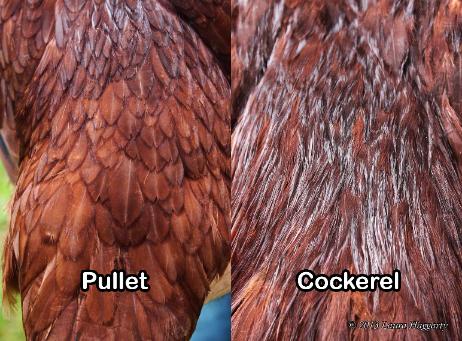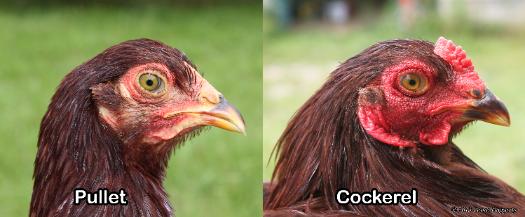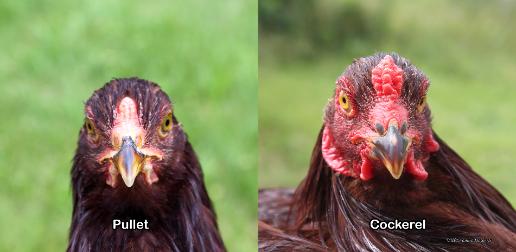
| . |
| . |
Generally, you should be able to start to determine gender in poultry at or around 12 weeks or so, sometimes earlier. See the photos below for some visual clues on gender. A good way to try to determine males from females is to look for saddle feathers. Hold a bird with the head facing you, looking down on it so you can see its back. When you look at the feathers just in front of the tail, which are called the saddle feathers, are they pointy, or rounded? Pointy saddle feathers mean it's a male bird, or cockerel. Rounded saddle feathers mean it's a female bird, or pullet. Same thing with hackle feathers. As well, hackle and saddle feathers of males will be glossier than females, whose feathers will be more dull and less shiny. Also cockerels generally have thicker shanks, bigger redder combs, and are generally larger and heavier than pullets of the same age. Behavior can sometimes give clues as to gender as well. Cockerels tend to be pushier at the feed trough and waterers. This is part of why it's a good idea to determine gender early, and separate birds by gender into different pens, which allows the pullets access to food and water without them being shouldered aside by the cockerels. Saddle feather comparisons - Head comparisons - |
Determining Gender

The American Buckeye Poultry Club



| All material copyright 2008 to present by The American Buckeye Poultry Club, photos copyright Laura Haggarty. All rights reserved. No material to be reproduced in any form without prior written permission |